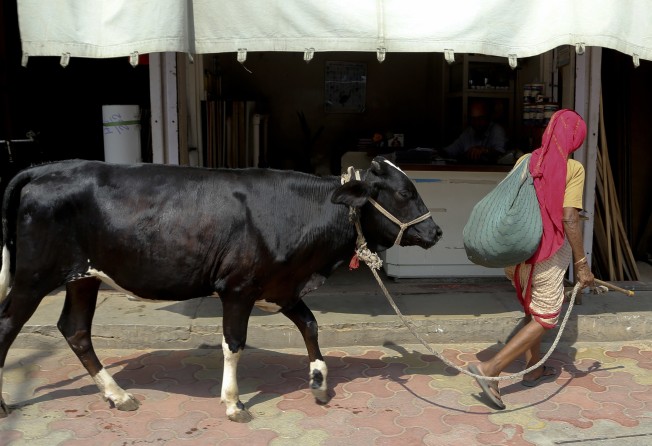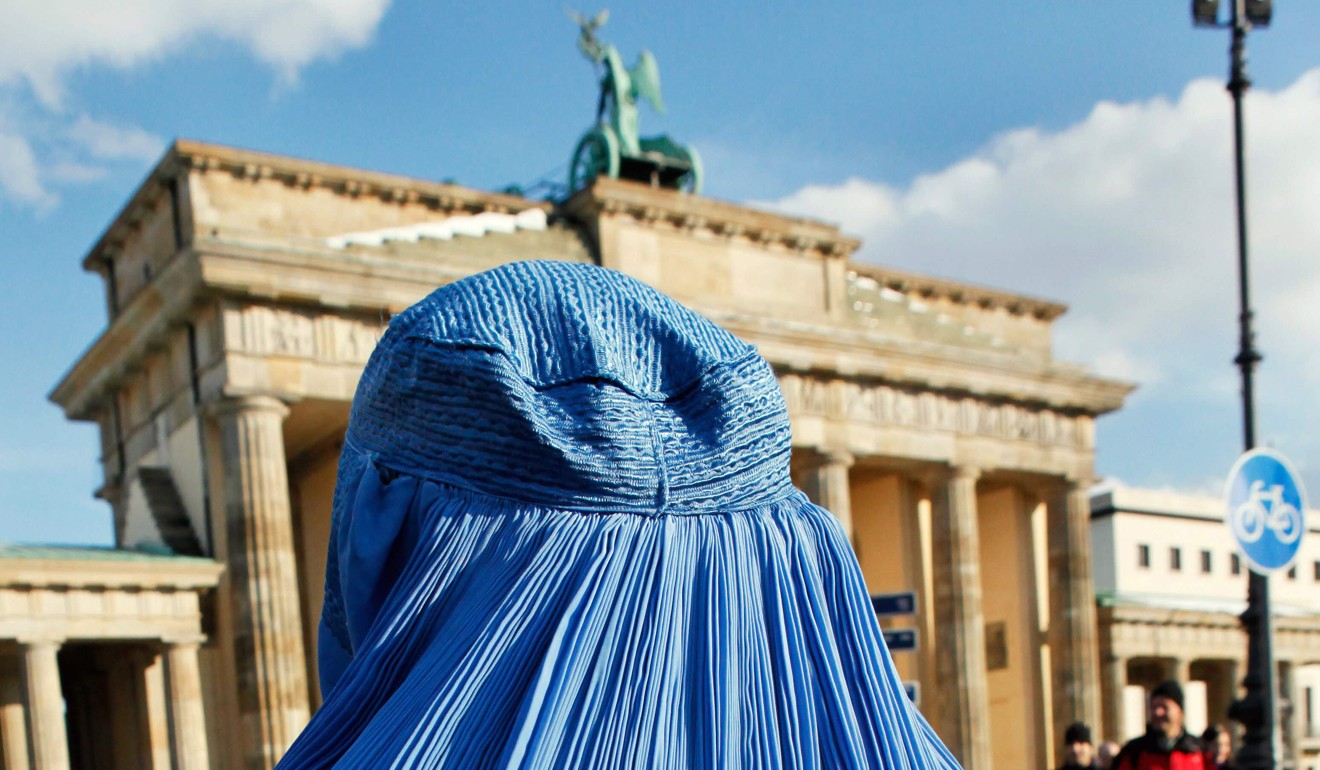
From vegetarianism to full-face burqas: the perils of setting norms in a globalised world
Philip Bowring believes a middle path must be struck when considering how far a society should go in accepting behaviour by religious minorities that do not accord with standards of the community at large. But respect does not mean no criticism

Recent stories of the murder of a supposed cow slaughterer in India by Hindu fanatics are a reminder that Chinese civilisation can be seen to be blessed by a lack of fetishes derived from tribal and religious superstitions which have carried through to bigger and more developed societies.
Thus in China, it is broadly permissible to eat anything nutritious in the animal kingdom. That is not to say that eating pangolins and other endangered species should not be outlawed. Nor is it to reject the idea that vegetarianism occupies a higher moral ground than flesh-eating. But it is one which avoids making judgments based either on supposed diktats from god via a self-proclaimed prophet, or confusing moral issues with sentimental ones.
Those horrified with the idea of eating dog or horse should pause the next time they are eating pork. Those who consider eating pork a god-decreed taboo should likewise consider the source of the beef they eat. And those for whom the cow, but not the closely related buffalo, is somehow sacred should consider the fate of the sheep and goats they consume.
What once might have been viewed as health-based taboos – for example, the dangers of poisoning from pork which can quickly spoil in the hot climates of the Middle East – became embedded in religions – Judaism and Islam – which originated in this region. Yet they were then transported globally, regardless of circumstance. Eating pork was once as normal in Indonesia as it is today in China and the Philippines – until the arrival of Islam.
These various prohibitions are traditions or means of group identification not based on modern scientific observation. They don’t seem to stand up to the dictum of the great 12th-century Iberian Jewish philosopher Moses ben Maimon (aka Maimonides) that there can be no contradiction between religion and scientific truth. Anything contrary to science cannot be true religion.

Another merit of the Chinese civilisation is the lack of any general tradition of infant genital mutilation of minors of either sex, the male version known politely as circumcision. (Eunuchs were largely an imperial court phenomenon.) Male mutilation has a long history but its origin among the Semitic tribes of the Middle East enabled it to spread mainly via Islam.
Should halal and kosher slaughter, seen by many as cruel, or infant circumcision, be accepted any more than polygamy?
It caught on in few other societies before becoming a handy income earner for American doctors in the 20th century. Its claims to being hygienic and prophylactic are not accepted in most of the world enjoying the highest levels of health – Japan, northern Europe, and so on – and is rare among non-Muslims in the rest of the world.
The Chinese version of bodily mutilation was foot-binding, but this only applied to upper-class women, varied in its prevalence and, like eunuchs, was an early victim of the 1911 revolution. China, which remains slow to eliminate other aspects of male dominance, is not caught up in Western debates about genital mutilation of minors. Germany tried to outlaw male as well as female genital mutilation but was immediately accused of being anti-Jewish and anti-Muslim. Yet there is a global campaign backed by the UN against female genital mutilation which ignores both traditions and makes scant distinction between horrendous removal of the most sensitive parts and an indiscernible scratch.
Ideally, it would be best to outlaw all mutilation of minors. It is not as though it can be undone. Which brings one to the question of how far societies should go in accepting behaviour by religious minorities which is not in accord with the standards of the society at large. Should halal and kosher slaughter, seen by many as cruel, or infant circumcision, be accepted any more than polygamy, which is banned in most countries without Muslim majorities?

Then there are the issues of the age of consent for sex. Should it be immediately following puberty, long a tradition in many societies, rather than local civil law which may vary between 14 and 18? In the US, the age of sexual consent varies between 16 and 18 and in Europe between 14 and 17. In Hong Kong, it is 16 while 14 in Macau and on the mainland. If similar societies have such variations, establishing international norms is futile. The situation is complicated by the declining age of puberty.
Globalisation confronts all societies in different ways. Trade is one thing, but imposing so called “international standards” at the social level can easily cause a backlash. Middle paths are needed between, for example, a Muslim minority’s demand for rights to the full-face burqa and four wives – and banning head scarves and full beards altogether.

In China’s case, the lack of division among the vast majority on issues such as dietary laws and genital mutilation is a big plus, but it is also resulting in an inability to understand why its treatment of Muslims in Xinjiang ( 新疆 ) is crude and counterproductive.
But respecting other beliefs does not exempt them from harsh criticism. Muslims (and Christians) who complain of blasphemy need to realise that claims to having access to god are blasphemy to non-believers. Mohammed is no more exempt than such other dead prophets as Mani, Mithra, Marx and Mao.
Philip Bowring is a Hong Kong-based journalist and commentator